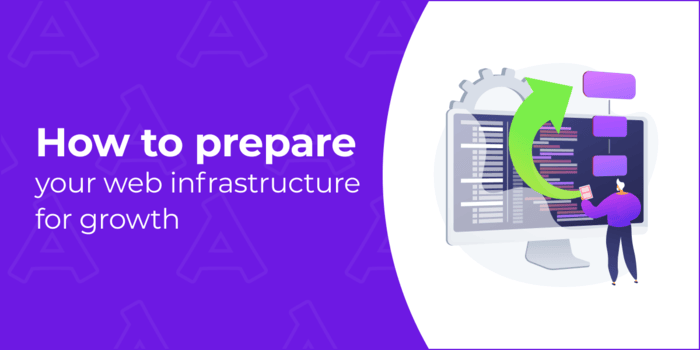Doing business online is no easy task. Having to constantly scale and adapt to the changing trends and demands of the clientele can be hard for many. So, the ability to scale, be it for expansion to new markets, traffic increase, or other reasons, becomes extremely important.
But mindless expansion can lead to a myriad of problems, including performance, security, and other issues. Choosing the right CMS is the key here, and for many companies, opting for Drupal development is the ideal solution.
Investing in a good content management system is a strategic decision that shouldn’t be handled lightly. If you want to scale your website, you need to make sure that the system is properly protected, can easily support the expansion of any scale, and is constantly updated to adapt to changing circumstances.
Why Scalability Matters for Online Businesses?
If you don’t grow, your business is failing. Or that is usually the case. It is only natural that everyone tries to increase the number of clients. But eventually, this will lead to a website struggling under increased traffic, with slow loading times and, thanks to all the attention focused on handling the influx of users, holes in its security.
And these, in turn, lead to problems with revenue and brand image. So, if you want to succeed, you need not only to scale, but to plan the entire process thoroughly.
Picking a suitable CMS before you do that can greatly ease the whole process and lower the cost of future migrations. An easy-to-scale platform will allow the business to quickly adapt to new conditions without any sacrifices. But how do you discern a good CMS from a bad one? Let’s figure it out.
Key Requirements for Scalable Web Infrastructure
The main distinguishing feature of a good CMS is its ability to handle great numbers of users without sacrificing performance. Any slowdowns inevitably drive the users away. A high level of customization is also welcome, allowing you to change the CMS according to your changing needs.
Support for multi-site management and localization is another important feature, especially if your business operates internationally. A strong, regularly updated security system will also be a great boon. These are the primary elements that make up a great CMS.
Why Drupal is the Perfect CMS for Growing Businesses?
One of the distinguishing features of Drupal is its open-source nature. Thanks to it, this system has a great level of customization, allowing any user to change it to their heart’s content. For example, the user can start with a relatively simple setup and add new modules when they are needed.
Beyond modularity, Drupal’s API-first approach makes integration seamless. Whether you’re adding a CRM, ecommerce functionality, or third-party analytics tools, Drupal’s flexibility ensures you’re never locked into a rigid system.
The platform also supports modern cloud hosting solutions and containerization technologies like Docker and Kubernetes, making it an excellent choice for high-traffic websites that need efficient load balancing and distributed computing.
Drupal’s multi-user access management ensures that different departments can collaborate efficiently while maintaining appropriate permissions. This is particularly valuable for large enterprises where teams manage different aspects of the site, from content updates to security settings.
Optimizing Drupal for Growth
Effective CMS scalability requires both the selection of an appropriate CMS platform and its subsequent optimization.
Drupal integrates robust caching systems such as Drupal Cache, Varnish, Redis, and Memcached to minimize server strain and enhance speed. Database optimization becomes essential to maintain site performance when handling millions of records.
By using CI/CD pipelines and tools such as Ansible and Terraform, we can carry out updates and deployments without affecting site performance. A CDN (Content Delivery Network) lowers latency, which makes sure that users across various locations experience quick page load times.
Managing Content Across Multiple Sites
Drupal’s Multisite feature transforms the management of multiple sites under one brand umbrella for businesses. A single Drupal installation allows you to manage multiple sites while minimizing administrative work and maintaining brand uniformity in all markets.
Drupal stands out in localization and multilingual support for businesses expanding into international markets. Built-in translation workflows allow businesses to effortlessly produce and maintain content in various languages which simplifies global expansion efforts.
Businesses benefit from content personalization which enables them to show different content to users by analyzing demographics, location data, and browsing habits. Optimizing conversions and enhancing customer engagement depends on this critical feature.
Security and Compliance for Scaling Businesses
Your expanding online presence leads to heightened security concerns. Drupal boasts a powerful security framework that defends against DDoS attacks and prevents bot intrusions as well as data breaches. Through frequent security patches and long-term support versions businesses can maintain protection from new security threats.
Drupal demonstrates superior capabilities in managing user roles. Through the use of detailed access permissions, businesses can create precise user rights which keeps both sensitive information and administrative tools protected.
Future-Proofing Your Business with Drupal
Business scaling involves not only handling increased traffic but also establishing sustainable and efficient methods for future growth.
If your business is preparing for growth, now is the time to consider Drupal migration. Whether you’re looking to enhance performance, improve security, or streamline operations, Drupal is built to scale with your success.

